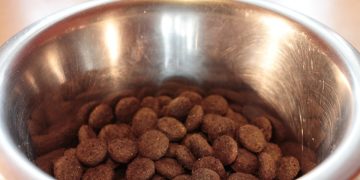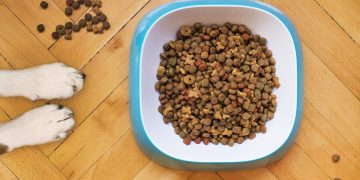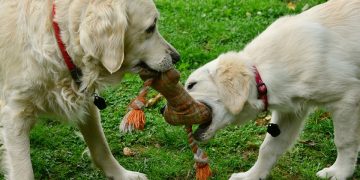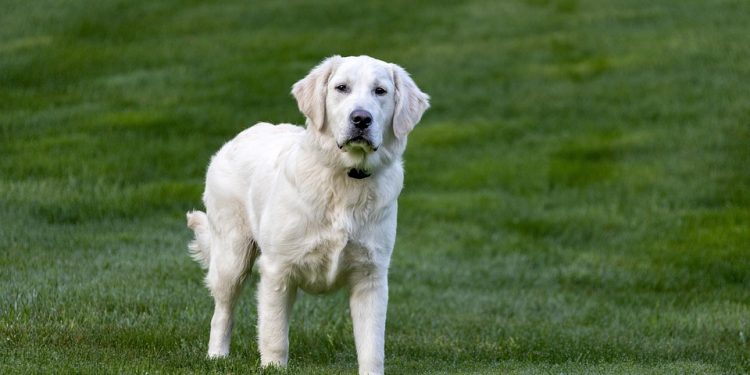The Ultimate Guide to Keeping Your Pup Healthy: Practical Tips for Optimal Dog Health
Having a furry friend in your life means taking on the responsibility of ensuring they live a long and healthy life. Just like humans, dogs require proper care, nutrition, and exercise to thrive. In this guide, we will provide you with practical tips for maintaining optimal health for your pup.
Choose the Right Food
One of the most important aspects of keeping your dog healthy is providing them with a balanced diet. When choosing dog food, opt for high-quality brands that contain real meat, vegetables, and whole grains. Avoid foods with fillers, artificial ingredients, and excessive amounts of preservatives.
It is also essential to consider your dog’s age, size, and activity level when selecting their food. Puppies, senior dogs, and active breeds may require different types of food to meet their specific needs. Consult with your veterinarian to determine the best diet for your pup.
Additionally, make sure your dog always has access to fresh water to stay hydrated and aid in digestion.
Regular Exercise
Exercise is crucial for your dog’s physical and mental well-being. Daily walks, playtime, and activities such as running or hiking can help keep your pup in shape and prevent obesity. Regular exercise also provides mental stimulation, reduces stress, and strengthens the bond between you and your dog.
Depending on your dog’s breed and age, they may require different levels of exercise. Make sure to tailor their activities to meet their specific needs. If you are unsure about how much exercise your dog needs, consult with a professional trainer or your veterinarian.
Regular Veterinary Check-ups
Regular visits to the veterinarian are essential for maintaining your dog’s health. Annual check-ups allow the vet to monitor your dog’s overall well-being, check for any potential health issues, and update vaccinations. Early detection of illnesses can help prevent them from developing into more serious conditions.
During check-ups, your veterinarian may also recommend preventive care such as heartworm medication, flea and tick prevention, and dental cleanings. Following their advice and staying up to date on your dog’s vaccinations and treatments can help keep them healthy and happy.
Dental Care
Many dog owners overlook the importance of dental care for their pets. Just like humans, dogs can develop dental issues such as tartar buildup, gum disease, and tooth decay. Poor dental health can lead to pain, infections, and other health problems.
To maintain your dog’s oral hygiene, brush their teeth regularly using a pet-specific toothbrush and toothpaste. You can also provide dental chews, toys, and treats that help remove plaque and tartar. Consider scheduling regular dental cleanings with your veterinarian to prevent potential dental issues.
Grooming and Hygiene
Regular grooming and hygiene practices are essential for keeping your dog clean and healthy. Depending on your dog’s breed, coat type, and activity level, they may require different grooming routines. Brushing, bathing, nail trimming, and ear cleaning should be done regularly to prevent mats, infections, and other issues.
If you are unsure about how to groom your dog properly, consider taking them to a professional groomer for assistance. Proper grooming not only keeps your dog looking and smelling good but also helps maintain their overall health and well-being.
Provide Mental Stimulation
In addition to physical exercise, dogs also require mental stimulation to stay happy and healthy. Boredom can lead to destructive behaviors, anxiety, and other issues. Providing your dog with interactive toys, puzzles, and training sessions can help keep their minds active and engaged.
Regular playtime, obedience training, and socialization with other dogs can also provide mental stimulation and prevent behavioral problems. Engaging with your dog and meeting their mental needs can strengthen your bond and enhance their quality of life.
Monitor Your Dog’s Weight
Maintaining a healthy weight is crucial for your dog’s overall health and well-being. Obesity can lead to various health issues such as joint problems, diabetes, and heart disease. Keep an eye on your dog’s weight and body condition to ensure they are at a healthy size.
If you notice your dog gaining or losing weight unexpectedly, consult with your veterinarian to determine the underlying cause and make necessary adjustments to their diet and exercise routine. Monitoring your dog’s weight regularly can help prevent obesity and other weight-related health problems.
Conclusion
By following these practical tips for maintaining optimal health for your pup, you can ensure they live a long and happy life. Remember to provide them with a balanced diet, regular exercise, veterinary care, dental hygiene, grooming, mental stimulation, and weight monitoring. By taking care of your dog’s health and well-being, you are giving them the best chance at a healthy and fulfilling life.
Remember that each dog is unique, so it is essential to tailor these tips to meet your dog’s specific needs and requirements. Consult with your veterinarian for personalized advice and guidance on how to keep your pup healthy and happy.














































